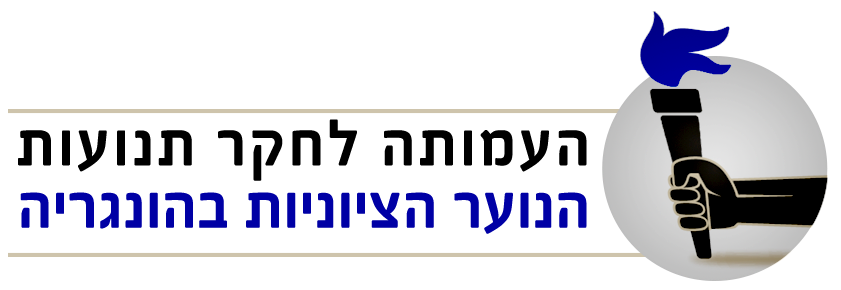In the second half of April, 1944, the Hungarian military regime issued a new round of recruitments to the forced labor units. David received his call-up notice on April 16th. Simon Levi gave David a stock of forged identity papers and told him that he had found a hiding place for David’s parents on a farm in western Hungary, on the other side of the Danube River.
David took the forged papers and went to his parents’ house, to save them from being deported to the ghetto. When David arrived in the town of Nyiregyháza, he put on the yellow star, because many people in the town knew who he was. He carried the call-up notice in his pocket. From Nyiregyháza, he continued his journey to his home village of Vencsellő, and reached his parents’ home.
David’s parents rejected outright his entire plan to move them to a safe place, far away in western Hungary. They rebuked him derisively, that “the Poles have filled his head with nonsense,” and insisted that they were not going anywhere. Deeply frustrated and in total despair, David realized that he, as their son, was helpless in rescuing his parents from the bitter fate awaiting them. They completely rejected the idea of going into hiding.
At that point David decided to put all his knowledge on the table: in the coming days a ghetto would be formed in the nearby town, and all the Jews would be crowded into it. His parents refused to believe that too. With a broken heart, David admitted defeat and resigned himself to fate. Within a few days his parents would see with their own eyes that their only son was telling the truth, and was concerned only for their good. That thought pained David’s heart even more.
The events unfolded fast. On April 16th, David’s father Josef Grünwald was summoned to the village council building and he and his wife were ordered to leave their home. When he returned to his house, young men armed with rifles were already standing by the door. The gendarmes appeared a few minutes later, plundered the house of all the couple’s valuables and took David’s parents to the Nyiregyháza ghetto. Davis saw his dumbstruck and astonished parents and his heart broke from the grief of his failure to save them. He gathered his strength and decided to try again. A short while later he went to visit them in the ghetto, bringing with him simple peasant clothing. He pleaded with them to don the clothing and follow him out of the ghetto. His parents rejected this suggestion and called their son crazy.
This response from his parents signaled to David the depth of the tragedy befalling Hungarian Jewry, which refused to even entertain the idea of the enormity of the danger hanging over them, even as they stood at the brink of the abyss. Even in a frightful place such as the ghetto, they refused to see the truth of their reality, because they had been taught to trust the authorities. Just as David’s parents believed they could survive in the ghetto, Jews throughout Hungary deluded themselves likewise. In the ghetto, the Jews continued to believe they had merely been evacuated from their villages temporarily, and would remain in the ghettos only until the war was over.
While David was trying to convince his parents, a young man who was also a ZYRM member arrived from Budapest with a new, complete set of perfectly forged documents, so that he could escape from there. When David’s mother learned that he was about to flee the ghetto, she burst into tears and begged him not to abandon them. David burned the papers that could have saved him. In the meantime, the ghetto commanders announced that anyone who had received a call-up notice to join a military labor unit had to leave the ghetto. In compliance with that order, David left the ghetto on May 2nd and traveled with his friends to Kassa. That was the last time he saw his parents, who were transported from the ghetto to Auschwitz.
Recorded by David Grünwald, who related this story to his Jewish high school teacher in Debrecen, Dr. Moshe Eliahu (László) Gonda
